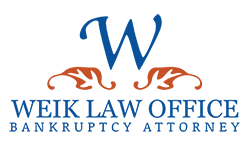GET HELP TODAY

Bankruptcy falls under federal law. Therefore, some laws and procedures under Chapter 13 and Chapter 7 are nearly identical for all states. However, there are also notable differences especially when it comes to the law enactment. Your Chapter 7 bankruptcy lawyers in Raleigh, NC explain everything you need to know about filing for bankruptcy in North Carolina.
Filing for Bankruptcy in North Carolina
Bankruptcy is a serious, life-changing decision, so it is best to enter this process as an educated petitioner. Here are important things you should know about filing for bankruptcy in North Carolina.
- Petitioners are required to undergo credit counseling.
Mandatory credit counseling before filing for bankruptcy can only be administered by agencies approved by the state’s bankruptcy administrators. Consult with your bankruptcy attorney in Raleigh, NC for a list of options on where to complete credit counseling.
- Be aware of North Carolina’s median income.
Petitioners are required to submit to the Means Test to determine their bankruptcy eligibility. In this test, the petitioner’s income will be compared to the state’s median income for a similarly-sized household.
Individuals with an income less than the state’s median income may qualify for Chapter 7. Meanwhile, those who do not qualify for Chapter 7 may apply for Chapter 13 bankruptcy. Under this chapter, the petitioner may apply for a three-year payment plan if his or her income falls under the median amount.
At present, North Carolina’s median income for a one-person household is $37,892, and $54,310 for a three-person household. These figures frequently change, so consult with your bankruptcy lawyer in Raleigh, NC for the latest estimates.
- Know the property exemptions for North Carolina.
There are federal and state lists for property exemptions, and some states allow individuals to choose between the two. North Carolina, however, only allows the state’s exemption list for debtors.
For instance, North Carolina has set a homestead exemption amount of $35,000 for personal or real property that the debtor uses as a residence. For individuals aged 65 and up, this amount is increased to $60,000.
In place of the homestead exemption, you can exempt a burial plot for up to $18,500 instead. North Carolina also allows debtors to exempt college savings accounts, health aids, personal property items, and other properties. Knowing these exemptions will help you prepare better for your filing.
- Petitioners need to undergo debtor education.
Before petitioners receive their debt discharge, they are required to undergo a debtor education course as per North Carolina bankruptcy laws. Like credit counseling, only agencies approved by bankruptcy administrators can administer this course.
Learn More about Filing for Bankruptcy in North Carolina
We understand that filing for bankruptcy can be a difficult decision, especially when you have to navigate the intricacies of federal and state bankruptcy laws. Let your Chapter 13 and Chapter 7 bankruptcy lawyer in Raleigh make this process easier as you make your way toward a fresh start.
Call Weik Law Office today at 919-845-7877 for a free consultation, and set up a time to speak with one of our professionals.
